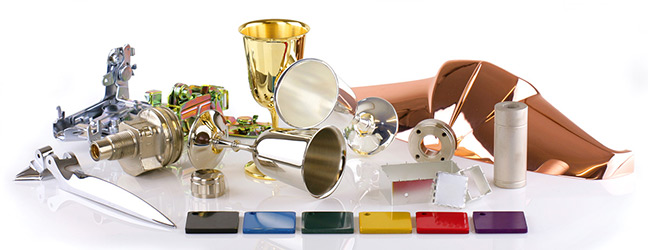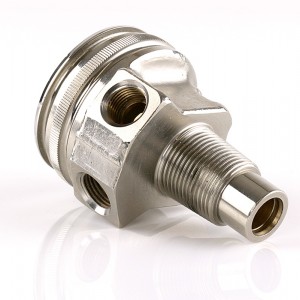Types of Nickel Plating and Their Benefits
There are many products on the market that incorporate a type of nickel plating in the manufacturing process. Nickel plating involves adding a thin layer of nickel onto a metal object. There are a variety of benefits to a nickel plating service. Some of the benefits of nickel plating include decorative purposes or to provide wear and corrosion resistance. The three most popular types of nickel plating are:
- Bright nickel plating
- Electroless nickel plating
- Dull nickel plating
There are a variety of advantages and disadvantages for each coating and each one is more suitable for some items than others. As a nickel plating company, we are here to offer our expertise on the types of services we provide. Find out which type of nickel plating is best for your application below:
Bright Nickel Plating
Properties: The bright nickel plating process involves adding an electric current to an item. Bright nickel plating produces a bright mirror-like finish due to its elevated sulphur content. It offers good conductivity but is not as ductile or corrosion resistant as other types of nickel plating. Bright nickel plating produces high levelling properties. This means it hides polishing lines and any other imperfections on the surface of a material.
Applies to: Apply bright nickel plating to steel, aluminium, copper, brass and iron for a clean and bright finish. It is also ideal as a base for other electroplating coatings to increase brightness.
Ideal for: Bumpers, rims, exhaust pipes and trims for cars, motorcycles and bikes as well as lighting fixtures and plumbing. It is also ideal for restoring any machinery mechanisms that have worn down. Our bright nickel plating process can help restore a range of other items and components.
Electroless Nickel Plating
Properties: Electroless nickel plating is unlike other forms of nickel plating. This is because electroless nickel plating uses an autocatalytic reaction. The whole process takes place without an electric current. It is effective for an even coating despite the shape of the piece and can deposit on surfaces which are non-conductive. Electroless nickel plating services are ideal for preventing corrosion and wear. The process is also perfect for anything that requires an elevated hardness.
Applies to: Plastic and a variety of metals as the layer contain 4% to 7% phosphorus.
Ideal for: Kitchen instruments such as doorknobs and bathroom taps. Office equipment such as drive shafts, rotors and oil field valves. Electroless nickel plating is frequently used as a coating in printed circuit boards for electronics. Circuits then use an added layer of gold to further prevent corrosion. Contact us to learn more about the applications of our electroless nickel plating services.
Dull Nickel Plating (Nickel Sulphamate)
Properties: The process is similar to bright nickel plating but produces a dull, matte finish. Dull nickel plating is hard-wearing, malleable and offers significant corrosion resistance. The coating can build thickness and is useful for abrasion and dimensional corrections purposes.
Applies to: Dull nickel plating is ideal as an undercoat for chromium, tin plating, silver plating and gold plating.
Ideal for: Anything which requires movement such as machine parts and springs. Dull nickel plating is also ideal for joining applications that entail brazing, soldering or laser welding. Dull nickel plating was commonly used in the restoration of vehicles pre-1933.
Dorsetware offer all three nickel plating services in Poole, Dorset. Speak to a member of our team for further assistance as to which type of nickel plating suits your project. Please contact our Dorsetware team on 01202 677939 or fill out our online contact form for a no obligation same day quote.




